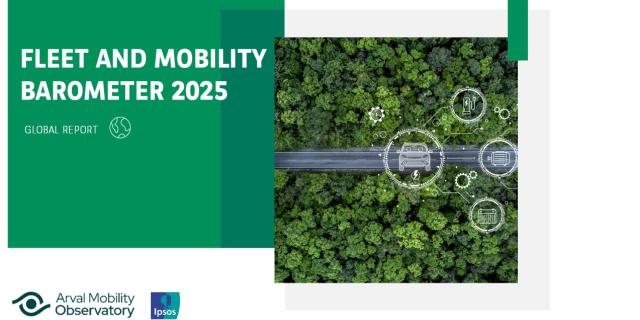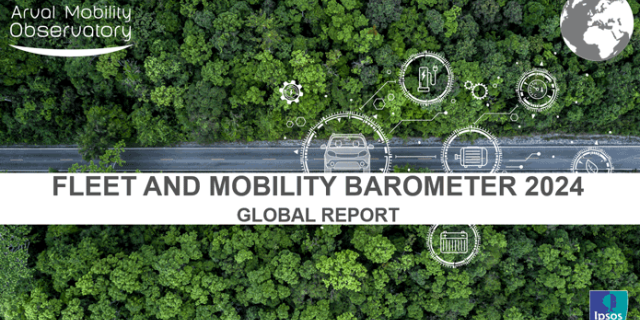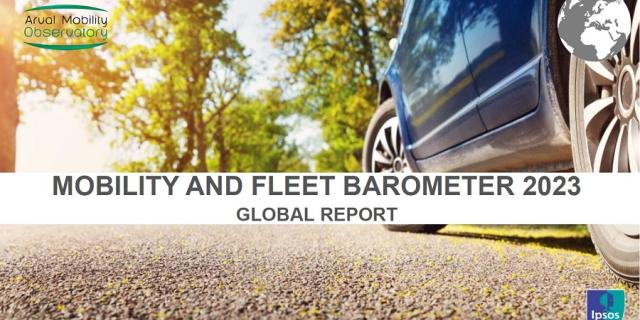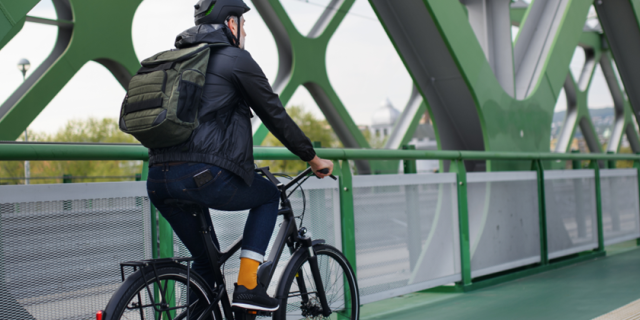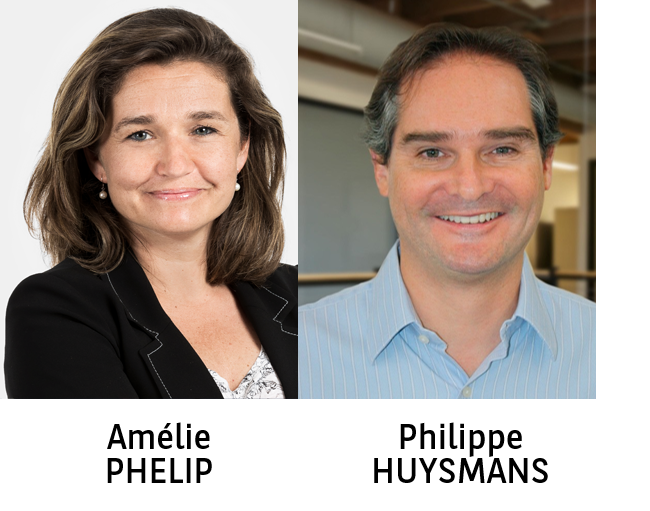Supporting innovation in corporate mobility
The transition to sustainable mobility is a major issue for companies, particularly because they require the tools to organise and optimise these new forms of mobility. To help overcome this challenge, Arval and Ridecell have joined forces to offer their clients a tailor-made platform which provides access to various multimodal, shared and integrated mobility solutions. Their aim is to support companies in managing this change.
Joint interview with Amélie Phélip, Mobility Director at Arval and Philippe Huysmans, Vice President of Growth at Ridecell.
What does the partnership between Ridecell and Arval entail?
AP: It consists of a five-year international agreement to offer our clients an integrated and sustainable mobility experience via a state-of-the-art platform. This service is based on front office: i.e. an app for employees to book and access mobility services. It also offers a back office for mobility managers, offering the guarantee of simplicity and fleet optimisation.
PH: To give you an overview, this service comprises four levels. Ridecell develops a digital platform which Arval then makes available to its corporate clients, along with its vehicle fleets. Companies are thus provided with a tool to manage all their mobility services and, lastly, employees are given a tool to book and use these services.
Why have you teamed up?
PH: Ridecell is a technology start-up, founded 10 years ago. It’s a pioneer in mobility and automation, while Arval is a global leader in leasing, with a fleet of over 1.4 million vehicles. Both of our companies have extensive expertise in mobility services for private individuals as well as employees, whether meeting business or personal mobility needs. Arval was one of the first major groups to make the decision to transform its business through digital technology. They have a long-term vision and, like us, aim to roll-out innovative mobility services. It's easier for us as a start-up, but for a group of their scale to do so is very impressive.
What is your vision for sustainable mobility?
AP: The mobility ecosystem and paradigm have changed drastically in recent years. The attachment of people to individual cars has even increased, but on average, 95% of the time they remain in the car park. I strongly believe in the power of shared and electric mobility: electric vehicles and car-sharing are a good fit, because both are often used for short journeys. These options can result in significant cost optimisation for companies, as well as helping to reduce their carbon footprint and improve employees’ well-being at work. Younger generations have very high expectations from their employers, especially in terms of commitment to CSR. Shared mobility is a service that is easy to implement and which yields a high return in terms of CSR objectives and company image.
How does your service aim to make corporate mobility more inclusive?
PH: In terms of corporate mobility, the idea is to provide more people with access to transportation. Today, company cars are usually only offered to executives. If part of the fleet is used for shared mobility, vehicles can be offered to people who only need them occasionally. Without this access to a shared fleet, employees tend to use taxis, hire companies, trains, etc. Such forms of transport may be more expensive and less sustainable. With carsharing, the company can offer the use of company vehicles to more of its employees. What’s more, it can move from purely individual, professional use to shared and potentially personal use: e.g. employees could book a vehicle for a weekend with their family.
AP: Not only can the company allow a wider target group of employees to use its vehicles, it can also offer a more complete range of mobility options. Arval’s fleets include bicycles, scooters and electric scooters, offering a more diverse and complementary range of transport than just private cars. If we take this approach a step further, the service could be opened up to residents in the same building or to nearby companies. This makes it a bit more complex to set up, but the Ridecell platform has the capabilities to offer this service, and we’re already going down that route.
What measures have you taken to offer Mobility as a Service (MaaS)?
AP: With regard to MaaS, the Arval Mobility App aims to provide a solution to our corporate clients that manages all the company’s mobility services via a single portal, whether for business or personal use, and for both one-off and regular trips. It combines Arval’s mobility services with existing alternatives for employees such as public transport and ride-hailing. As such, employees who receive a mobility budget can spend it according to their needs and preferences. The idea is to provide a “one-stop shop” for booking and payment. The Ridecell solution will be integrated into the MaaS platform to offer access to our fleets, but will be rolled-out on a wider scope than our MaaS.
How does the Ridecell platform facilitate fleet management?
PH: Using a digital system gives the company a better overview of vehicle usage. The company can then make decisions to optimise the use of its fleet. At the end of the month, any report needed on the usage data can be generated: how many cars are used by each building? Which vehicle models and for what types of journeys? When was the highest level of demand? All the key factors can be optimised. The platform helps to develop efficiencies and meet demand that varies widely over time. The health crisis is a perfect example of this, because major groups had to change their working hours and, therefore, their transport habits.
AP: I have in mind already many use cases. For example, the efficiency gains made by one of our major customers, the Belgian Army. Through the carsharing system, they have significantly optimised the cost of managing their fleet of thousand cars. For large fleets as such, cost rationalisation is particularly key, as well as simplificity of the process from an operational point of view. Before this client adopted carsharing, each time an employee wanted to use a vehicle, they had to book it through their fleet manager. The manager would consult the schedule and then give the employee the vehicle key. With the state of the art digital platform, none of that is necessary: the vehicle is booked and the doors are unlocked via the app. It’s easier for both the user and the manager.
What is the benefit of a customisable platform?
PH: The Ridecell platform was designed to manage complex business operations, because we realised that each company has slightly different requirements and there are a large number of variables involved. Everything is tailor-made in this field, there’s no “one size fits all”. Therefore, we created a kind of mixing deck that is given to the operator so that they can configure their own variables. They can tap on each mobility type and adjust it according to their needs.
How do you support your customers with their transition to sustainable mobility?
AP: Early last year, Arval launched a mobility consulting approach to help our clients begin this process. According to the Arval Mobility Observatory Barometer, 71% of European companies offer at least one alternative mobility solutions to their employees. It is clear that companies are willing to face these challenges and that this trend is growing rapidly. However, the majority of businesses have only implemented partial solutions. Our consulting capabilities enable us to structure the approach, assess the situation, identify the best solutions and help them to roll-out these services on an operational level. This transition requires a coordinated effort from a number of employees: human resources, CSR managers, financial directors, etc. It is also important to involve the right people and to offer the most appropriate services from a wide range of options.
PH: We offer technological support. We are a start-up company: each time our clients identify a new need, we deploy a team of engineers to develop our dynamic platform. Our head office is based in Silicon Valley for good reason! Furthermore, we have a data analysis unit which continually improves the system’s functions and makes recommendations to operators. This is really important, and it's why Arval chose us. They wanted to work with a technological partner that could address the mobility issues of tomorrow.
In partnership with Usbek & Rica





